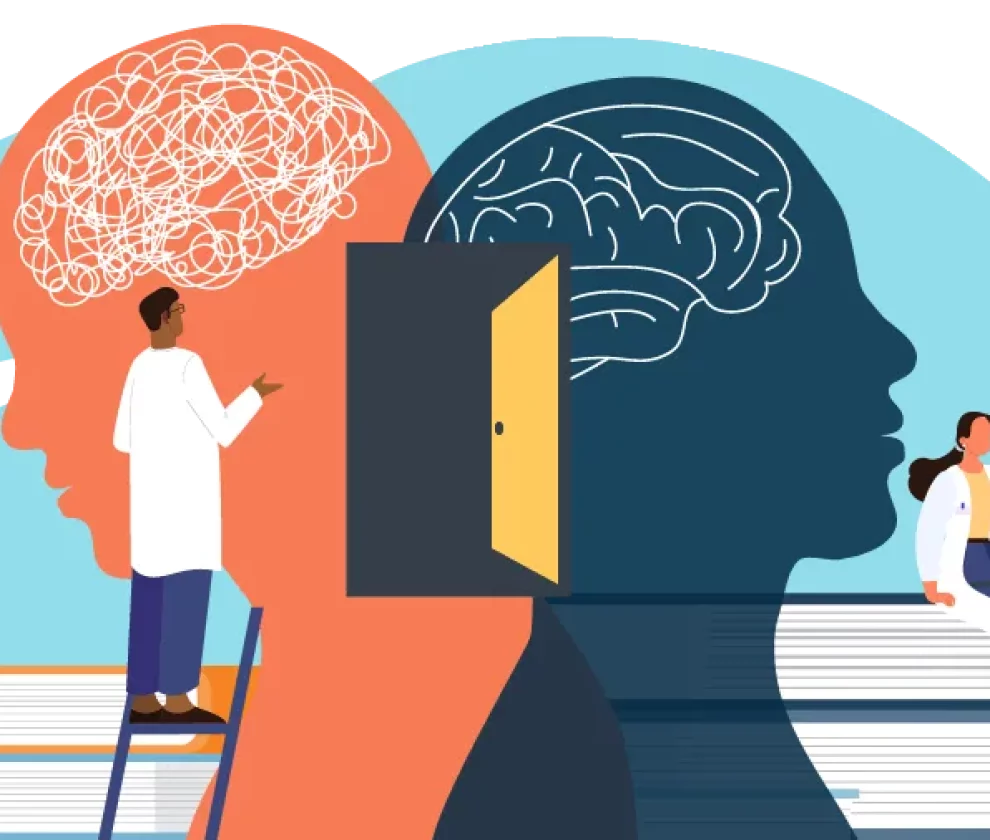Grief is a natural response to loss, but when multiple losses happen in a short time, it can become overwhelming. This is known as compounded grief—a cumulative experience that makes it harder to process emotions and heal. Unlike typical grief, which lessens with time, compounded grief often feels never-ending, leaving individuals emotionally drained and struggling to function.
If you’re facing compounded grief, you are not alone. Understanding this complex form of grief and seeking the right support can help you move forward. At Novu Wellness, we offer compassionate care to help individuals navigate loss and begin the healing process.
What Is Compounded Grief?
Compounded grief, also known as cumulative grief, occurs when multiple losses accumulate before previous grief has been fully processed. Each loss intensifies the emotional weight of the previous ones, making it difficult to recover. This can happen due to repeated personal losses, traumatic events, or ongoing life changes.
For instance, someone may lose a loved one and then experience a major life change like job loss, divorce, or health issues soon after. These successive losses create an emotional burden that makes healing feel impossible. Compounded grief can also emerge during collective tragedies, such as a pandemic or natural disaster, where many experience loss simultaneously.
Unlike standard grief, compounded grief prolongs emotional distress because there is little time to process each loss before another occurs. This accumulation of grief can cause an overwhelming emotional toll, leading to feelings of helplessness and despair. It also affects the body’s stress response, making individuals more prone to anxiety, depression, and physical health issues.
At Novu Wellness, we recognize the unique challenges of compounded grief. Our trauma-informed therapy helps individuals work through their emotions in a safe, supportive environment. By addressing grief holistically, we empower individuals to gradually regain emotional balance and find a path toward healing.
Why Is Compounded Grief So Difficult to Handle?
Grief is an emotional process that takes time, but compounded grief makes it difficult to fully process one loss before another occurs. Each new grief event can reopen old wounds, leading to an overwhelming sense of emotional exhaustion. This accumulation of unresolved grief can also increase feelings of hopelessness and isolation.
The brain’s ability to process emotions becomes overwhelmed when grief is layered. Instead of moving through the natural stages of grief, individuals may become stuck in a prolonged state of sadness, anger, or emotional numbness. This can make it harder to adapt to daily responsibilities, maintain relationships, or engage in self-care.
Additionally, compounded grief is often misunderstood. While friends and family may acknowledge one or two losses, they might not fully grasp the impact of multiple losses. This lack of recognition can leave grieving individuals feeling unsupported, deepening their emotional struggle. The weight of multiple losses can also cause survivors’ guilt, where individuals question why they are still here while their loved ones are not. If your mental health is struggling it may be best to seek professional help.
Symptoms of Compounded Grief
Compounded grief often feels more intense and prolonged than grief from a single loss. Common symptoms include persistent sadness or numbness, difficulty concentrating, and heightened anxiety or depression. Many individuals experience fatigue, headaches, insomnia, or appetite changes due to the emotional toll.
Social withdrawal is also common, as engaging with others can feel exhausting. Some may struggle with guilt or self-blame, replaying past events and questioning what could have been done differently. These emotions can make it difficult to seek support, leading to further isolation and emotional suppression.
The impact of compounded grief can extend into all areas of life. Work performance may decline, personal relationships may suffer, and self-care routines may be neglected. Those experiencing compounded grief may also become highly reactive to additional stressors, as their emotional reserves are already depleted.
When unaddressed, these symptoms can disrupt daily life and increase the risk of developing mental health conditions like depression and PTSD. Seeking professional support can help manage these symptoms and prevent long-term emotional distress.
The Effects of Compounded Grief on Mental Health
Unresolved grief can significantly impact mental well-being, especially during the holidays, which are typically associated with joy. Compounded grief increases the risk of anxiety, PTSD, and depression, making it harder to function in daily life. Many people experience emotional numbness, feeling detached from themselves and their surroundings. When grief is layered, it can prolong emotional distress, making it difficult to reengage with life in a meaningful way.
Without proper support, some turn to unhealthy coping mechanisms such as substance use, isolation, or emotional suppression. These patterns can make grief even more difficult to navigate. Avoidance behaviors may develop, where individuals steer clear of places, people, or reminders associated with their losses. Over time, these avoidance behaviors can make healing even harder, as they prevent the necessary emotional processing required to move forward.
Additionally, compounded grief can cause cognitive distortions—persistent negative thoughts about oneself, the world, and the future. Individuals may begin to believe that life will never improve or that they are destined to experience continued loss. Addressing these thought patterns through therapy can be a crucial step toward emotional recovery.
For individuals with bipolar disorder, compounded grief can trigger mood episodes, intensifying depressive states or leading to emotional instability. Managing grief alongside bipolar symptoms may require specialized treatment approaches to stabilize mood and prevent further distress.
If grief is interfering with your ability to function or find moments of peace, seeking professional help can provide the tools needed for recovery. Therapy can help individuals process grief in a way that is manageable, preventing the emotional burden from becoming overwhelming.
Finding Meaning and Moving Forward
Healing from compounded grief doesn’t mean forgetting—it means learning to carry loss in a way that fosters growth. Small steps like creating new routines, engaging in meaningful activities, or honoring lost loved ones can help in the healing process. Therapy provides guidance to reframe loss as part of life rather than an insurmountable obstacle.
At Novu Wellness, we provide compassionate care through PHP and IOP programs to help individuals navigate grief with structured support. If you or a loved one is struggling, reach out—help is available, and you are not alone.




